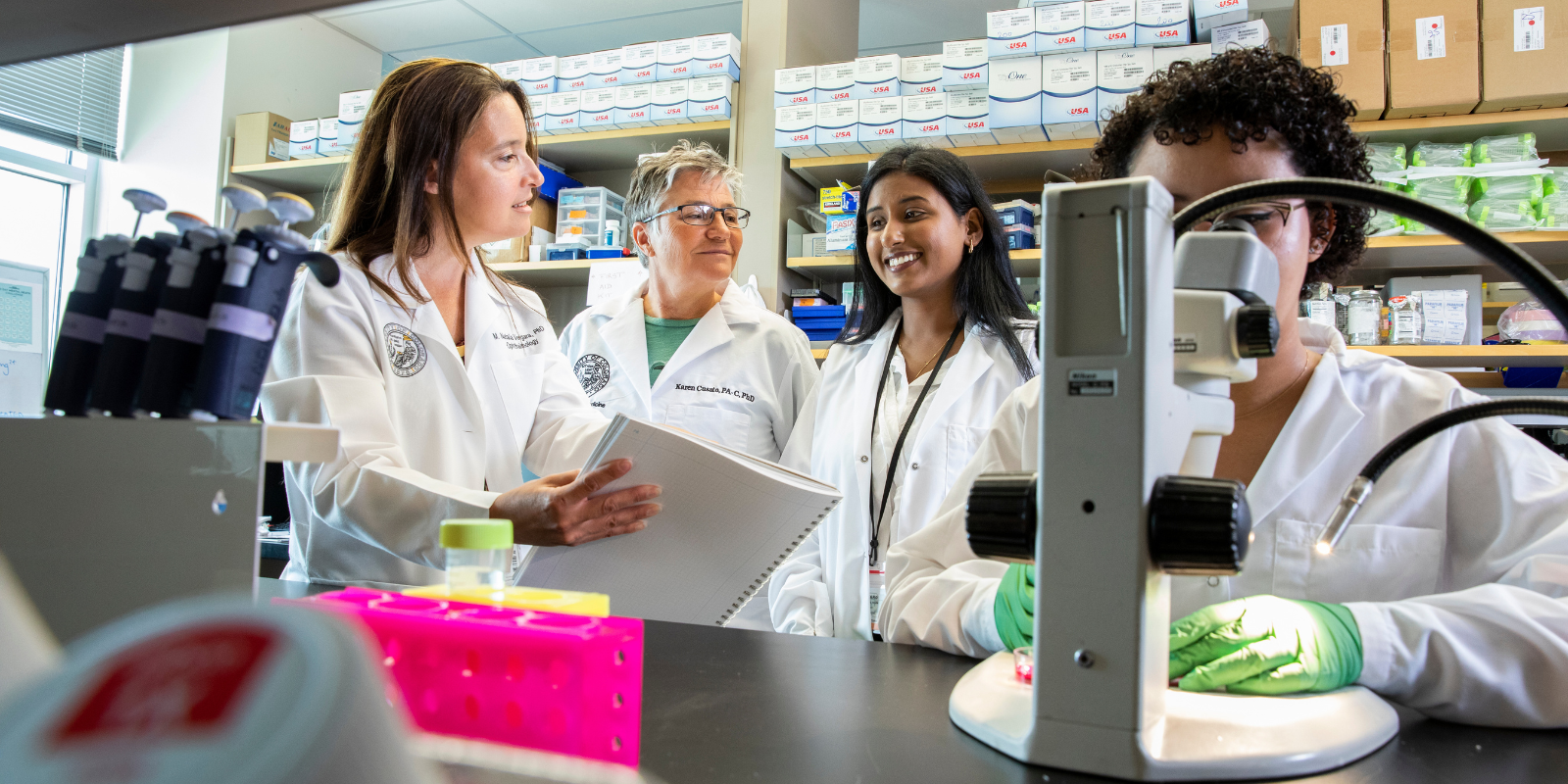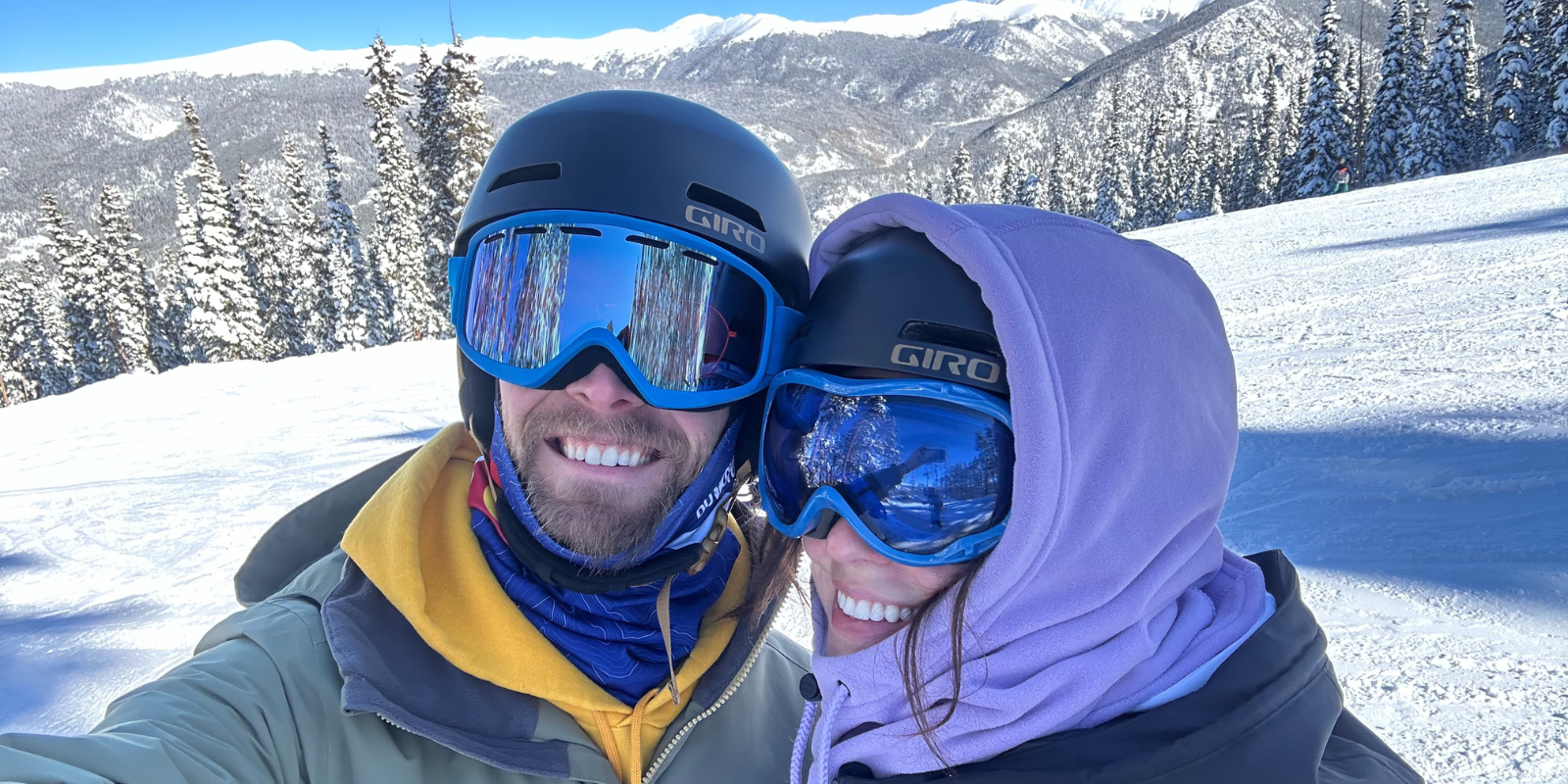Winter is a busy season for Kaleb Abbott, OD, MS, FAAO, assistant professor of ophthalmology and dry eye specialist at the University of Colorado School of Medicine.
“I run the dry eye clinic at the Sue Anschutz-Rodgers Eye Center, so cold weather is a huge part of what I do,” he says. “Everyone’s eyes seem to be worse this time of year due to seasonal changes and less humidity in the air.”
Cold winter months can bring exacerbated symptoms of dry eye and other ocular surface issues, too, like ultraviolet (UV) light induced damage and snow blindness. Abbott emphasizes that it’s important to be mindful about eye health when temperatures dip, whether you’re spending time outdoors or seeking refuge inside.
Colder weather means drier eyes
Cold weather holds less moisture than warm air, making dry climates like Denver feel even drier. Indoor heaters can also lower the relative humidity in the air and contribute to worsening dry eye symptoms. As a result, individuals with no history of dry eye may actually experience symptoms consistent with dry eye.
Ironically, one common symptom of dry eye is tearing, which is a reflex from the ocular surface drying out.
“In the winter, eyes tend to tear a lot more as they dry out,” Abbott explains. “You might get a lot of reflex tearing. The cold thermoreceptors of the cornea tell the lacrimal glands to produce more tears.”
A combination of wind and dry air can intensify reflex tearing as the tear film is quicker to evaporate and stimulate the cold thermoreceptors, causing them to signal the need for greater tear production.
This could result in fluctuating vision during the winter because excess tears often blur vision. These symptoms can be normal but might also call for an expert’s help.
“Anytime the symptoms become really bothersome, and you don't feel like it's controlled with over-the-counter options, you should see an eye doctor,” Abbott says. Left untreated, dry eye can harm the cornea and even lead to vision loss in some instances.
Freezing temperature and UV injuries
Eyes can certainly dry out, but can they freeze over? It’s unlikely, Abbott explains.
“Tears play a role in warming up the eyes,” he says. “The act of blinking and closing the eyes temporarily raises the temperature of the ocular surface enough that you generally don’t see any kind of frost or freezing develop.”
It’s more realistic that a person might experience photokeratitis, also called snow blindness, from exposure to UV light during winter months.
“We see this quite a bit,” Abbott says. “When the ground is covered in snow, that sunlight comes down and can reflect into the eyes. If they aren’t protected, you can experience a corneal sunburn.”
Snow blindness can be painful, reduce vision, and increase light sensitivity. It can take a week or more to recover as the corneal epithelial cells regenerate. To prevent snow-related eye injuries, Abbott recommends keeping sunglasses in rotation.
“People often associate sunglasses with temperature, but you should associate sunglasses with how sunny it is,” he says. “Some people are less likely to wear their sunglasses in the wintertime because it's cold. But if it's sunny and cold, you still run the risk of harming the ocular surface.”
Sunglasses can also play a role in reducing dry eye symptoms in the winter.
“In windy weather, they can actually trap in some humidity, hold in that moisture, and block out the dry, cold air,” Abbott says. “The winter months can be uncomfortable for many people, but wearing the proper eye protection and paying attention to humidity levels can help relieve those symptoms.”



.png)
